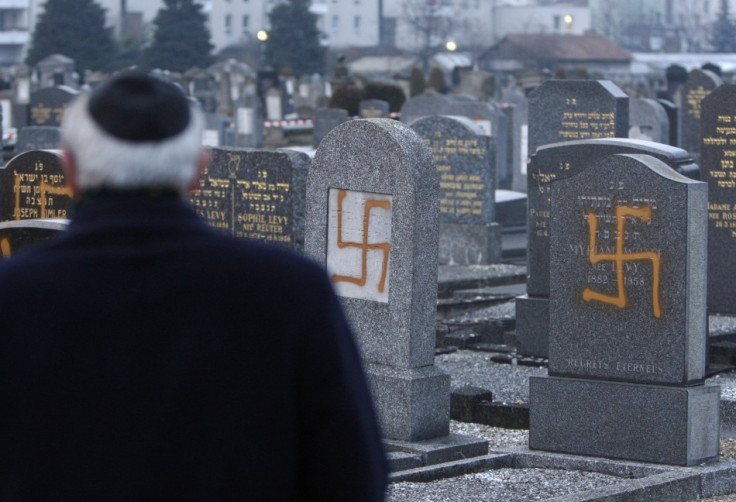France Shooting: Jewish Communities in Europe Under Threat

The fatal shooting outside a Jewish school in Toulouse, in which four people including three children were killed and two people were wounded, has sparked alarm in Jewish communities all over France.
The minister of the interior, Claude Gueant, who was expected in Toulouse along with President Nicolas Sarkozy, issued an order to police to intensify security around Jewish schools, especially in the southwest of the country.
The shootings occurred outside the Ozar Hatorah school.
The Community Security Trust (CST), which has been providing security advice and training for Jewish schools, synagogues and Jewish communal organisations in the UK since 1994, is not surprised by the attack.
"Terrorist attacks have been around for decades - it's something France is well used to," the CST told the International Business Times UK. "The threats against Jewish communities rise and fall depending on the overall political situation of the time. But it's too early to classify this particular attack."
Some 500,000 Jews live in France, the third largest Jewish community in the world. Ozar Hatorah is a Jewish society promoting religious education among young people, especially in the Middle East and among the Sephardic Jewish community in France.
Sephardic Jews are the descendants of the Jews who used to live in the Iberian Peninsula before their expulsion in the Spanish Inquisition. Their ancient tradition of costumes and cultures was almost swept away by the Nazi Holocaust.
In 2011, CST published a report on terrorism against Jewish communities around the world over the last 30 years and stressed a shift in the type and nature of perpetrators.
"[In the 1980s] we saw mainly secular Palestinians and their leftist associates targeting Jewish buildings. Also neo-Nazis were very active in France," said CST. "They have been replaced by radical Islamists, the global jihad movement and its Iranian surrogates, from 9/11, mainly radical Sunni groups like al-Qaida."
After the massacre in Oslo, where 77 people were shot dead by hard-right supporter Anders Breivik at a youth camp, the perception of right-wing violence has risen in the minds of politicians across the continent, according to experts. Police examination of Breivik's contacts highlighted a Europe-wide online blog discussion board of anti-immigrant and nationalist ideas.
But the neo-Nazi threat has always been present in Europe, particularly in Britain, according to the CST. "Most of the time it was unsuccessful so people were less aware of it," CST said. "Breivik's carnage was successful and horrific and made a lot of people recognise publicly a problem that was already there."
However, the CST rejects the idea that before Norway there was a tendency among European politicians to downplay far-right violence because it did not fit the al-Qaida and anti-Islamist narrative post 9/11.
"The threat of al-Qaida was a serious problem and needed a great deal of resources and attention," CST said. "But it is important when you focus on one threat not to forget the others".
© Copyright IBTimes 2025. All rights reserved.






















